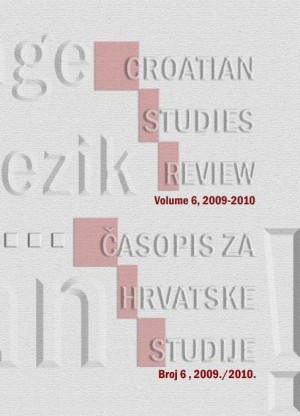The Coming of Ferdinand Habsburg to the Croatian Throne
The Coming of Ferdinand Habsburg to the Croatian Throne
Author(s): Neven BudakSubject(s): Regional Geography, Diplomatic history, 16th Century, The Ottoman Empire
Published by: Croatian Studies Centre
Keywords: Diet of Worms; 1521; Charles V; the consensual division of power;
Summary/Abstract: Charles V grew up in Flanders, and his younger brother Ferdinand in Spain. Because of this, there was a serious danger of Ferdinand taking over not only the Spanish throne, but also the German empire. To avoid possible conflicts between brothers, the consensual division of power was agreed upon, first in 1521 at the Diet of Worms, and a year later in Brussels. According to the agreement, Ferdinand held power over the Austrian lands and Wiirtemberg, and Charles held power over the rest of the territory. Both brothers soon faced various difficulties in their countries. Charles got involved in a violent war with Frances I, king of France, over Italy. After the Emperor’s great victory at Pavia in 1525, and the notorious plundering of Rome by his mercenaries in 1527, he was crowned Emperor in Bologna. This was the last coronation in which the Pope took part, because the succeeding emperors adopted Maximilian’s decision to exclude the Pope from the coronation ceremony. Charles V was also the last emperor of the medieval kind, who believed in the possibility of a unified Christian empire, headed by him as a Catholic ruler. Too many obstacles were in the way of the realization of this idea. Beside the war over Italy and the fights with the Turks, which he led himself or by subsidizing his brother with money and troops, from 1517 Charles V had to face the problems caused by the Lutheran Reformation, and then the German Peasant War. These last two events also affected Ferdinand, who was still dealing with the last leaders of the peasants in his countries, when he was crowned king of Bohemia; suppressing the Reformation, along with the wars with the Turks, would be his primary concern for a long time.
Journal: Croatian Studies Review - Časopis hrvatskih studija
- Issue Year: 2002
- Issue No: 2
- Page Range: 135-155
- Page Count: 21
- Language: English

